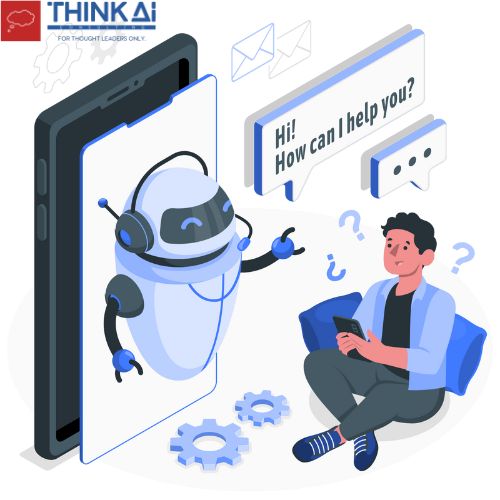In the realm of artificial intelligence, the journey began in 1951 with Christopher Strachey’s automated draughts bot. Little did he know that he was laying the groundwork for a technological revolution that would reshape industries, including healthcare marketing.
In 2023, AI is not merely a buzzword; it’s a formidable force reshaping the way businesses operate. From eliminating errors to ensuring 24/7 uptime and accelerating data processing, the benefits of AI in various industries are undeniable.
However, as with any innovation, there are drawbacks, such as AI’s limitations in creativity and its lack of understanding of ethics, emotions, or nuances.
Marketers Embrace AI: Benefits and Drawbacks
Marketers across industries, including healthcare, have embraced AI-driven processes like healthcare chatbot services to enhance efficiency and generate results.
In the healthcare sector, the impact of AI on marketing strategies is profound, bringing about positive changes that benefit both healthcare professionals and patients.
AI’s Role in Healthcare Marketing: Accurate Predictions for Personalized Campaigns
The ability of AI to analyze vast sets of patient data and make meaningful predictions is a game-changer for healthcare marketing. Healthcare professionals can now leverage AI to predict patients’ potential health conditions based on their current health and lifestyle. Furthermore, AI can identify patients’ preferred communication platforms, the types of ads they engage with, and even predict staffing needs and optimal appointment times.
Virtual Assistants Transform Interaction Models
The traditional website interaction model involves submitting a request and waiting for a response. Enter virtual assistants or AI-powered chatbot services, which operate 24/7, instantly responding to patient queries.
By feeding relevant data, healthcare professionals can utilize virtual assistants to handle various inquiries, effectively marketing services while contributing to increased website traffic.
Voice Recognition Enhances Patient Interaction and Data Collection
AI-driven voice recognition systems have evolved, enhancing patient interaction and data collection. Platforms like Amazon’s Alexa, now HIPAA-compliant, allow patients to access confidential health-related information through voice commands. This not only streamlines the process but also eliminates the need for screens or paperwork.
AI in Content Generation and Personalized Experiences
Content creation, a task traditionally reserved for human writers, is now facilitated by AI tools. These tools can generate content quickly, efficiently, and cost-effectively, allowing healthcare marketers to maintain a consistent online presence without the need for extensive manual input.
Additionally, AI can contribute to personalized experiences through Customer Database Platforms (CDPs). By feeding patient information into AI/ML systems, healthcare professionals can create personalized campaigns that resonate with patients on an individual level.
Streamlining Operations for Efficiency
Automation is a cornerstone of AI’s impact on healthcare marketing. Processes such as patient referrals, managing online listings, and handling email and text responses can be automated, saving time, effort, and resources.
Automation contributes to improved brand awareness, expanded reach, and overall efficiency in healthcare marketing operations.
In Conclusion
The integration of chatbot in healthcare represents a paradigm shift. While AI cannot replace human expertise, its collaboration with healthcare professionals enhances the efficiency of patient care delivery, leading to cost savings and improved patient outcomes.
As the healthcare industry continues to embrace AI, staying updated on current marketing trends becomes imperative for professionals aiming to navigate these transformative waters successfully. The future of healthcare marketing is here, and it’s driven by the intelligence of AI.

